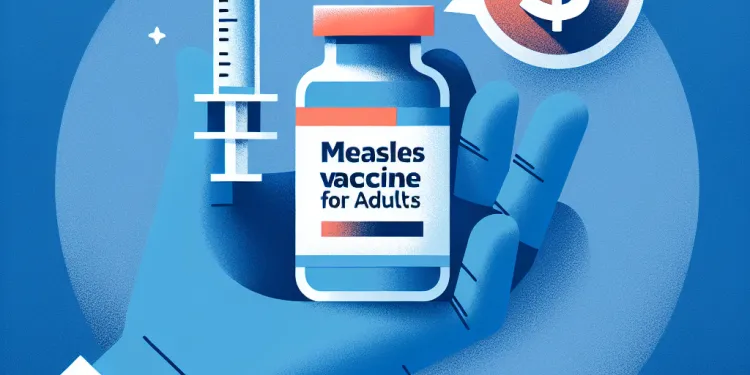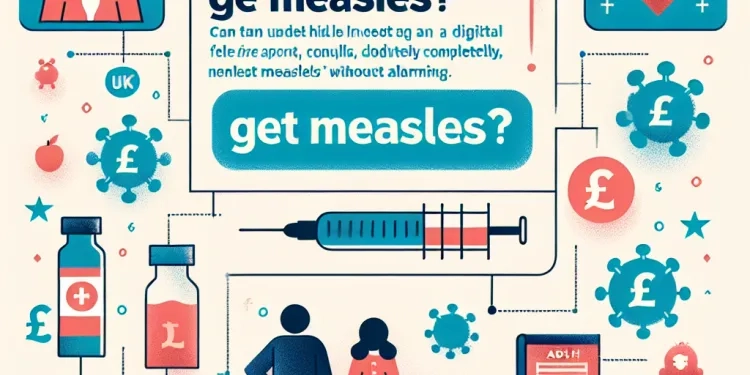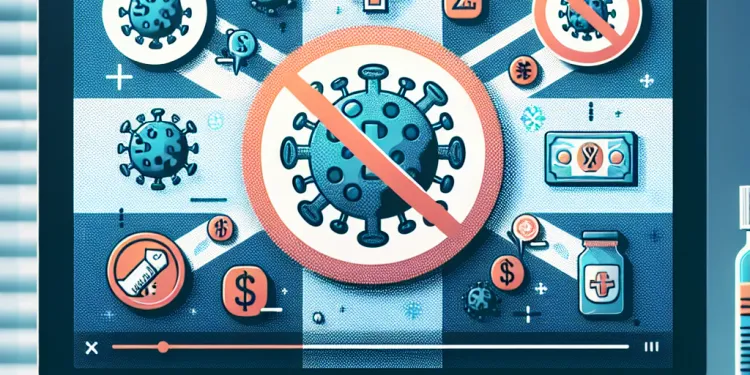
Find Help
More Items From Ergsy search
-

What is the MMR vaccine?
Relevance: 100%
-

How effective is the MMR vaccine?
Relevance: 96%
-

How effective is the MMR vaccine?
Relevance: 95%
-

Can adults receive the MMR vaccine?
Relevance: 92%
-

At what age is the MMR vaccine given in the UK?
Relevance: 92%
-

Who should receive the MMR vaccine?
Relevance: 91%
-

At what age should children receive the MMR vaccine?
Relevance: 85%
-

Can the measles vaccine be given to adults?
Relevance: 60%
-

What is the current measles vaccination coverage in the UK?
Relevance: 57%
-

Who should receive the Rubella vaccine?
Relevance: 55%
-

How does vaccination affect measles rates?
Relevance: 55%
-

Children's Vaccination Schedule
Relevance: 50%
-

Is it necessary to get a measles vaccine before travelling?
Relevance: 49%
-

What is a live-attenuated vaccine?
Relevance: 48%
-

Are vaccines linked to autism?
Relevance: 47%
-

What are the different types of vaccines?
Relevance: 47%
-

Do I need any vaccine injections for EU countries?
Relevance: 46%
-

Can Rubella be prevented?
Relevance: 45%
-

How do vaccines work?
Relevance: 44%
-

What are vaccines and how do they work?
Relevance: 43%
-

Why is measles less common in the UK?
Relevance: 42%
-

How can measles outbreaks be prevented?
Relevance: 41%
-

What are the common side effects of vaccines?
Relevance: 40%
-

Are adults in the UK at risk from measles?
Relevance: 40%
-

Can vaccines cause the diseases they protect against?
Relevance: 40%
-

Are there vaccination recommendations for people with compromised immune systems?
Relevance: 40%
-

Are measles outbreaks common in the UK?
Relevance: 40%
-

Are there vaccines for meningitis?
Relevance: 39%
-

Are vaccines safe?
Relevance: 39%
-

What is a vaccine?
Relevance: 39%
-

Why has the UK lost its measles elimination status?
Relevance: 39%
-

Is there a vaccine for H3N2?
Relevance: 39%
-

Can adults get measles?
Relevance: 39%
-

Is there a vaccine for norovirus?
Relevance: 39%
-

Is there a vaccine for gonorrhoea?
Relevance: 39%
-

Is there a vaccine for impetigo?
Relevance: 38%
-

Is there a vaccine for scabies?
Relevance: 38%
-

How can measles be prevented?
Relevance: 38%
-

What is a subunit vaccine?
Relevance: 37%
-

Is the shingles vaccine safe?
Relevance: 37%
Who Should Receive the MMR Vaccine?
The MMR vaccine is an essential component of public health strategy, designed to protect individuals and communities from three serious viral diseases: measles, mumps, and rubella. In the United Kingdom, health authorities advocate for certain groups to receive the MMR vaccine to maintain high levels of immunity within the population.
Children
In the UK, the National Health Service (NHS) advises that all children receive two doses of the MMR vaccine. The first dose is typically administered when the child is around 12 to 13 months old, and the second dose is usually given before the child starts school, at around three years and four months. This schedule is designed to provide optimal protection against these diseases during childhood, a critical time for developing strong immunity.
Adults Without Immunity
Adults who missed their childhood MMR vaccinations or only received one dose should consider getting vaccinated, especially if they plan to travel internationally or work in healthcare settings. The NHS offers catch-up vaccines for adults who have not previously been fully vaccinated. Those born before 1970 may have already been exposed to measles as children and could have natural immunity, but anyone uncertain about their vaccination status should consult their GP.
High-Risk Groups
Specific high-risk groups are particularly encouraged to ensure they are fully vaccinated. This includes healthcare professionals who may be exposed to these viruses and could potentially spread them to vulnerable patients, as well as people who are planning to travel to countries with endemic measles or mumps outbreaks. Pregnant women should not receive the MMR vaccine due to potential risks to the unborn child, but women of childbearing age in high-risk groups should verify their immunity and complete their vaccination schedule prior to conception.
Conclusion
Widespread vaccination is crucial for the protection of both individuals and the wider community. By following the recommended guidelines in the UK, including receiving both doses in a timely manner and catching up on missed vaccinations if necessary, individuals can effectively contribute to the eradication of measles, mumps, and rubella, safeguarding overall community health. Always consult with a healthcare provider or the NHS for the most up-to-date advice and recommendations regarding the MMR vaccine.
Who Should Get the MMR Vaccine?
The MMR vaccine helps stop the spread of three bad illnesses: measles, mumps, and rubella. In the UK, health experts say that some people should get the MMR vaccine to keep everyone safe from these illnesses.
Children
In the UK, the National Health Service (NHS) says all kids should get the MMR vaccine twice. The first shot is given when a child is 12 to 13 months old. The second shot is given before they start school, around 3 years and 4 months old. This helps keep them safe from these illnesses as they grow.
Adults Without Immunity
Adults who did not get the MMR vaccine as kids or only got one shot should think about getting it now. This is important if they plan to travel to other countries or work in hospitals. The NHS can give these adults a "catch-up" vaccine. People born before 1970 might already be protected because they were exposed to measles as kids. But if someone isn’t sure if they got the vaccine, they should ask their doctor.
High-Risk Groups
Certain people really need to make sure they are protected. This includes doctors and nurses who might catch the illnesses and give them to sick patients. It also includes people traveling to places where these illnesses are common. Pregnant women should not get the MMR vaccine because it could harm the baby. But women who can have babies should check if they are protected before getting pregnant.
Conclusion
Many people getting the vaccine helps keep everyone safe. By getting the vaccine on time and catching up if you missed it, you help stop measles, mumps, and rubella. This keeps our whole community healthy. Always talk to your doctor or the NHS for the best advice on the MMR vaccine.
Frequently Asked Questions
Who should receive the MMR vaccine?
The MMR vaccine is recommended for all children as part of the NHS childhood vaccination programme. It is given in two doses, the first at around 12 months of age and the second at 3 years and 4 months.
Can adults receive the MMR vaccine?
Yes, adults who have not been vaccinated or are unsure of their vaccination status should receive the MMR vaccine. Particularly, those in high-risk groups, such as healthcare workers, should ensure they are protected.
Should pregnant women get the MMR vaccine?
No, pregnant women should not receive the MMR vaccine. It is recommended to get vaccinated before pregnancy if you're not already immune.
Can the MMR vaccine be given to someone with a compromised immune system?
The MMR vaccine is not recommended for people with severely compromised immune systems. Consult a healthcare provider for advice specific to your condition.
What if an adult has only had one dose of the MMR vaccine?
Adults who have only had one dose of the MMR vaccine should receive a second dose to ensure full immunity.
Are there any age limits for receiving the MMR vaccine?
There are no age limits for receiving the vaccine. It is safe and beneficial at any age, especially if you have not had both doses.
What should I do if I'm unsure of my vaccination status?
If you are unsure about your vaccination status, speak with your GP. They may recommend getting the vaccine for assurance of immunity.
Should people who have had measles, mumps, or rubella still get vaccinated?
If you’ve had one or more of these illnesses, you may still benefit from the vaccine, as it will protect you against the others.
Why is the second dose of the MMR vaccine necessary?
The first dose of the MMR vaccine provides about 90-95% protection. The second dose boosts immunity to nearly 100% for measles, mumps, and rubella.
Can someone travelling abroad receive the MMR vaccine?
Yes, if travelling to a country with higher measles risk, it’s recommended to get vaccinated before travel if you are not already immune.
What if I miss the scheduled MMR vaccine doses for my child?
If your child misses a scheduled dose, speak with your GP to arrange the vaccination as soon as possible.
Is there a risk of side effects from the MMR vaccine?
Most side effects are mild and include fever, rash, and slight swelling. Serious side effects are rare.
Can the MMR vaccine be given at the same time as other vaccines?
Yes, the MMR vaccine can be administered alongside other vaccines without affecting efficacy.
Is the MMR vaccine necessary if measles, mumps, and rubella are rare in the UK?
Yes, vaccination helps prevent outbreaks and protects the community since measles and mumps can still be imported from other countries.
Can breastfeeding mothers receive the MMR vaccine?
Yes, breastfeeding mothers can safely receive the MMR vaccine without any risk to the baby.
Who should get the MMR shot?
The MMR shot helps protect you from diseases. It is a good idea for these people to get it:
- Children. They usually get the shot at 1 year old.
- Kids going to school. They need another shot before starting school.
- Adults. If you never got the shot, you can ask your doctor if you should get it now.
- People who travel. Going to other countries can be risky. The shot helps keep you safe.
If reading is tough, you can ask someone to read this to you. Talking to a doctor can also help.
The MMR jab is important for all kids. It is part of the NHS plan to keep children healthy. Kids get two jabs. The first jab is when they are about 1 year old. The second jab is when they are 3 years and 4 months old.
Can grown-ups get the MMR jab?
Yes, grown-ups can get the MMR jab. The MMR jab helps protect people from three illnesses: measles, mumps, and rubella.
If you want to know more or need help, you can talk to a nurse or a doctor. They can answer your questions.
Yes, grown-ups who have not got the vaccine or don't know if they have, should get the MMR shot. This is very important for people who might catch diseases easily, like doctors and nurses. They need to make sure they are safe.
Can pregnant women get the MMR vaccine?
The MMR vaccine helps protect people from three illnesses: measles, mumps, and rubella.
It's important to know that pregnant women should not get the MMR vaccine. This is because it could harm the baby.
If you're thinking about having a baby, talk to a doctor about whether you need this vaccine before you get pregnant.
If you need help understanding this, ask someone you trust, like a family member or friend, or talk to a doctor or nurse.
No, women who are pregnant should not get the MMR vaccine. It is best to get the shot before you become pregnant if you are not already protected.
Can someone with a weak immune system get the MMR shot?
The MMR shot protects against measles, mumps, and rubella.
People with a weak immune system should talk to a doctor before getting the MMR shot.
A doctor can help decide if the shot is safe for them.
Use tools like pictures or simple charts to help understand this.
If your body can't fight germs very well, you should not get the MMR shot. Talk to your doctor to find out what is safe for you.
What happens if an adult got just one MMR shot?
If an adult has only had one MMR shot, they might not have full protection. The MMR shot helps protect against measles, mumps, and rubella.
It's good to get a second shot to be safer. This can help you stay healthy and stop the spread of these illnesses.
If you are unsure about your shots, talk to a doctor. They can help you know what to do next.
Using a calendar can help you remember when to get your shots.
Asking a friend or family member to go with you to the doctor can also help.
If grown-ups have had just one shot of the MMR vaccine, they need to get a second shot to be fully protected.
Can anyone get the MMR vaccine?
This is about who can have the MMR vaccine.
There are some age rules for getting the MMR vaccine.
- Babies usually get the MMR vaccine at 1 year old.
- Kids can get another dose before they start school, usually around 3 or 4 years old.
- Older kids and adults can get it if they didn't before.
If you need help, ask a doctor or nurse. They can tell you when to get the vaccine.
Pictures or simple books can help you learn more.
People of any age can get the vaccine. It is safe for everyone. The vaccine is good for you, especially if you haven't had both doses yet.
What can I do if I don't know if I've had my vaccines?
If you're not sure if you've had your vaccines, here's what you can do:
- Ask your doctor for your vaccine records.
- Look for a vaccination card at home.
- Check if your school or job has your vaccination info.
- Contact your local health clinic for help.
You can also ask someone you trust to help you. They can talk to doctors or clinic workers with you.
If you do not know if you have had the vaccine, talk to your doctor. They might say you should get the vaccine to be safe and protected.
Do people who had measles, mumps, or rubella need a vaccine?
If you have been sick with one or more of these illnesses, you can still get help from the vaccine. The vaccine will protect you from getting the other illnesses.
Why do you need a second MMR shot?
The second MMR shot helps keep you safe from getting sick. The first shot works well, but the second one makes sure you are even safer. It helps your body be ready to fight germs.
Here are some ways to remember when to get your second shot:
- Use a calendar to mark the date.
- Set an alarm on your phone.
- Ask an adult to help remind you.
The first shot of the MMR vaccine helps protect you from getting sick. It works 90 to 95 out of 100 times. The second shot helps even more and protects almost everyone from measles, mumps, and rubella.
Can you get the MMR shot if you are going to another country?
If you are going to another country, you can get the MMR shot. Ask your doctor for advice. It helps to prevent measles, mumps, and rubella.
Tools to help you understand:
- Ask a Doctor: Talk to your doctor. They can tell you about the MMR shot.
- Visit a Clinic: Go to a local clinic if you need the shot. They can help you.
- Use a Calendar: Write down the date you need the shot. This helps you remember.
If you are going to a country where there are more measles, it is a good idea to get a vaccine. This is important if you are not already protected against measles.
What if my child misses the planned MMR shots?
If your child misses their MMR shots, don't worry. You can still help them get protected.
What to do:
- Call your doctor or nurse.
- Ask for a new time to get the MMR shots.
It's important to catch up on missed shots. The MMR vaccine helps keep your child safe from measles, mumps, and rubella.
Tools that can help:
- Set reminders on your phone or calendar for vaccine appointments.
- Use apps to track health and vaccine records.
If your child misses their vaccine, talk to your doctor. They will help you get it done soon.
Can the MMR vaccine cause any side effects?
The MMR vaccine is a shot that helps keep you healthy. Like with any medicine, there can be side effects. But most people do not have any problems.
Side effects are usually mild. You might get a sore arm where you got the shot. You could also have a fever or feel tired for a short time.
If you feel worried or have questions, talking to a doctor can help. They can tell you more about the vaccine and any side effects.
To help understand more, you can use pictograms or ask an adult to explain. Using videos or storybooks about vaccines might also be helpful.
Most side effects aren't too bad. You might get a fever, a rash, or a little bit of swelling. Serious side effects don't happen very often.
Can a child get the MMR vaccine with other vaccines?
Yes, a child can get the MMR vaccine at the same time as other vaccines. It's safe to do this.
If you have questions or feel unsure, it's a good idea to ask your doctor or nurse. They can help you understand more.
Sometimes a calendar can help keep track of when to get vaccines. You can use stickers or colors on the calendar to make it fun!
Yes, you can get the MMR shot with other shots, and it still works well.
Do I need the MMR vaccine if measles, mumps, and rubella are not common in the UK?
The MMR vaccine stops you from getting three illnesses: measles, mumps, and rubella. These illnesses can make you very sick.
Even if these illnesses are not common in the UK, the vaccine is still important.
The vaccine helps keep you safe and also helps other people stay safe. When more people get the vaccine, fewer people can get sick.
If you want to learn more, ask a doctor or nurse. They can help you understand.
Using pictures or videos can also help you learn about vaccines.
Yes, getting vaccines helps stop the spread of diseases. Vaccines keep everyone safe because diseases like measles and mumps can come from other countries.
Can moms who breastfeed get the MMR shot?
Moms who are breastfeeding can get the MMR shot. The MMR shot helps protect you from three illnesses: measles, mumps, and rubella. It is safe for moms and their babies.
If reading is hard, you can ask someone to read this with you. You can also use reading tools, like text-to-speech apps, that can read the words aloud.
Yes, mothers who are breastfeeding can get the MMR vaccine. It will not harm the baby.
Useful Links
This website offers general information and is not a substitute for professional advice.
Always seek guidance from qualified professionals.
If you have any medical concerns or need urgent help, contact a healthcare professional or emergency services immediately.
Some of this content was generated with AI assistance. We’ve done our best to keep it accurate, helpful, and human-friendly.
- Ergsy carfully checks the information in the videos we provide here.
- Videos shown by Youtube after a video has completed, have NOT been reviewed by ERGSY.
- To view, click the arrow in centre of video.
- Most of the videos you find here will have subtitles and/or closed captions available.
- You may need to turn these on, and choose your preferred language.
- Go to the video you'd like to watch.
- If closed captions (CC) are available, settings will be visible on the bottom right of the video player.
- To turn on Captions, click settings .
- To turn off Captions, click settings again.
More Items From Ergsy search
-

What is the MMR vaccine?
Relevance: 100%
-

How effective is the MMR vaccine?
Relevance: 96%
-

How effective is the MMR vaccine?
Relevance: 95%
-

Can adults receive the MMR vaccine?
Relevance: 92%
-

At what age is the MMR vaccine given in the UK?
Relevance: 92%
-

Who should receive the MMR vaccine?
Relevance: 91%
-

At what age should children receive the MMR vaccine?
Relevance: 85%
-

Can the measles vaccine be given to adults?
Relevance: 60%
-

What is the current measles vaccination coverage in the UK?
Relevance: 57%
-

Who should receive the Rubella vaccine?
Relevance: 55%
-

How does vaccination affect measles rates?
Relevance: 55%
-

Children's Vaccination Schedule
Relevance: 50%
-

Is it necessary to get a measles vaccine before travelling?
Relevance: 49%
-

What is a live-attenuated vaccine?
Relevance: 48%
-

Are vaccines linked to autism?
Relevance: 47%
-

What are the different types of vaccines?
Relevance: 47%
-

Do I need any vaccine injections for EU countries?
Relevance: 46%
-

Can Rubella be prevented?
Relevance: 45%
-

How do vaccines work?
Relevance: 44%
-

What are vaccines and how do they work?
Relevance: 43%
-

Why is measles less common in the UK?
Relevance: 42%
-

How can measles outbreaks be prevented?
Relevance: 41%
-

What are the common side effects of vaccines?
Relevance: 40%
-

Are adults in the UK at risk from measles?
Relevance: 40%
-

Can vaccines cause the diseases they protect against?
Relevance: 40%
-

Are there vaccination recommendations for people with compromised immune systems?
Relevance: 40%
-

Are measles outbreaks common in the UK?
Relevance: 40%
-

Are there vaccines for meningitis?
Relevance: 39%
-

Are vaccines safe?
Relevance: 39%
-

What is a vaccine?
Relevance: 39%
-

Why has the UK lost its measles elimination status?
Relevance: 39%
-

Is there a vaccine for H3N2?
Relevance: 39%
-

Can adults get measles?
Relevance: 39%
-

Is there a vaccine for norovirus?
Relevance: 39%
-

Is there a vaccine for gonorrhoea?
Relevance: 39%
-

Is there a vaccine for impetigo?
Relevance: 38%
-

Is there a vaccine for scabies?
Relevance: 38%
-

How can measles be prevented?
Relevance: 38%
-

What is a subunit vaccine?
Relevance: 37%
-

Is the shingles vaccine safe?
Relevance: 37%


